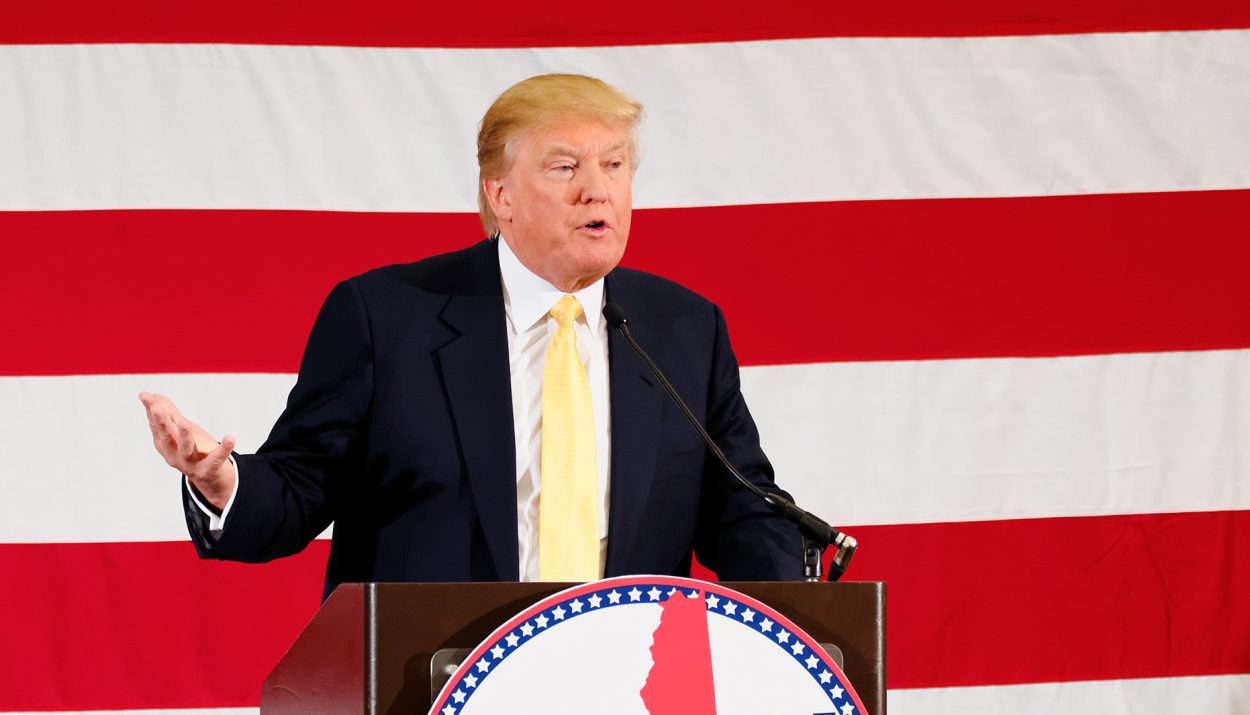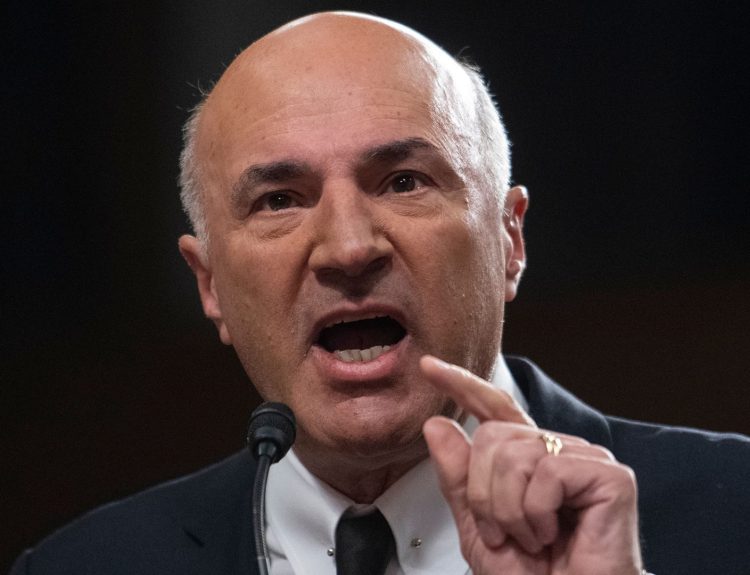Former President Trump recently critiqued the Biden administration after his victory in the Iowa caucuses. He echoed past commentary in labeling Biden the “worst president in history” while suggesting Jimmy Carter may now feel relief at this designation.
References to Eisenhower-era immigration enforcement efforts have reemerged in political attacks. The charged rhetoric risks inflaming tensions and stereotypes around immigration issues. Finding a balanced, ethical path forward remains a complex challenge.
The harsh rhetoric continues Trump’s pattern of pointed attacks on his potential 2024 opponent. References to failures like the Afghanistan withdrawal and open border policies represent Republican criticism of perceived White House ineffectiveness.
Blunt Criticism
Former President Trump has certainly not held back in his criticism of the current Biden administration. His recent statements characterize President Biden as “destroying our country” and assert that he is “the worst president in the history of the United States.”

While such statements are clearly hyperbolic, they do speak to Trump’s strongly negative assessment of President Biden’s leadership and policies. Specifically, Trump aims at Biden’s handling of issues like the economy, immigration at the southern border, and foreign policy matters like Afghanistan, Ukraine, Israel, and Yemen. He paints Biden as weak and incompetent in dealing with these pressing matters.
Repetition of Accusations
Trump’s consistent and repeated description of Biden as the “worst president” in U.S. history echoes rhetoric used in prior speeches. Frequently pairing this accusation with references to crises like Afghanistan, inflation, and immigration, Trump employs hyperbolic language to criticize his potential 2024 opponent.

By repeating these accusations across public statements and campaign speeches, Trump establishes consistent messaging that aims to reinforce his characterization of Biden’s presidency. This repetition across various contexts magnifies his critique through frequency and hyperbole rather than substantive policy analysis.
Unfavorable Historical Comparison
Drawing comparisons between current and past administrations is common in political rhetoric. However, the specific contrast made between Presidents Biden and Carter warrants examination. President Carter has received some recent positive reappraisals by historians regarding his effectiveness while in office.
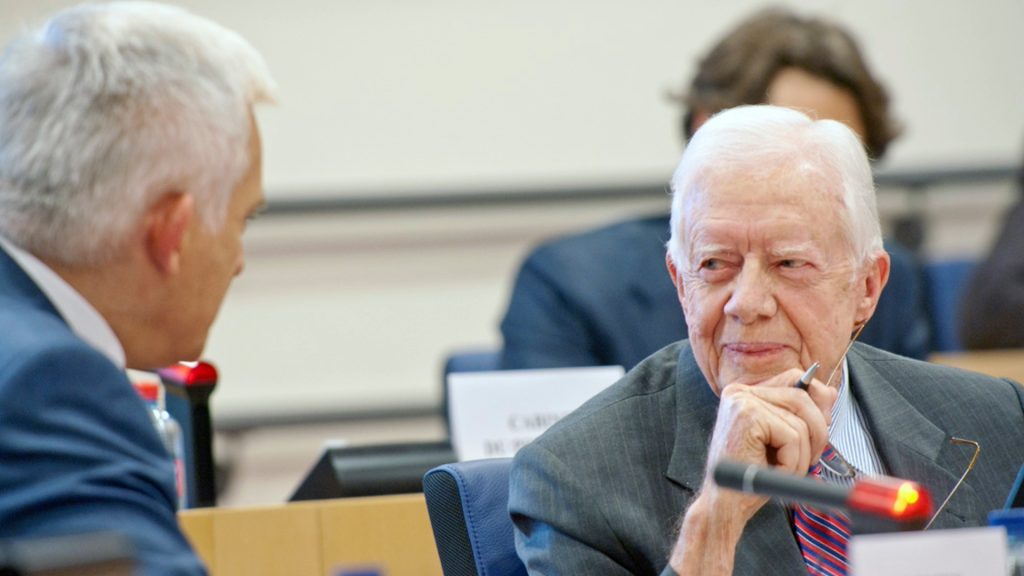
His legacy continues to be reevaluated. Invoking President Carter in this context could be viewed as disrespectful given his and his late wife’s advanced age. Some have called the comparison insensitive. References to “Operation Wetback” may promote negative stereotypes and fail to capture the complexity behind immigration issues.
Carter’s Hypothetical Satisfaction
According to the remarks from the former president, Jimmy Carter would likely feel some sense of relief or satisfaction regarding his historical standing as Biden continues to struggle. While Mr. Carter oversaw significant economic and foreign policy challenges during his time in office, he has endured criticism that may now seem less severe in comparison.

Multiple sources note comparisons between Presidents Biden and Carter in terms of low approval ratings stemming from domestic issues and global crises. With inflation hitting 40-year highs, Mr. Biden faces scrutiny reminiscent of the economic malaise that plagued the Carter era.
Analyzing Biden vs. Carter
There have been some recent comparisons made between President Biden and former President Jimmy Carter. While both faced challenges such as economic troubles and foreign policy crises, there are also important differences. Carter contended with high levels of both inflation and unemployment, leading to a period of “stagflation.” This took a heavy toll on his approval ratings.

Biden has also had to grapple with rising inflation and some Americans struggling financially. However, unemployment is relatively low at this point. The Iranian hostage crisis that emerged under Carter proved highly damaging and consumed much attention. Biden faces foreign policy tests like the Russian invasion of Ukraine and tensions with China over Taiwan.
Kamala’s Reflection on Carter
Vice President Kamala Harris’s recent interview with PBS NewsHour reflected sentiments similar to those expressed by President Jimmy Carter during his presidency. Specifically, Harris acknowledged the public’s frustration with current events and desire for a return to normalcy.
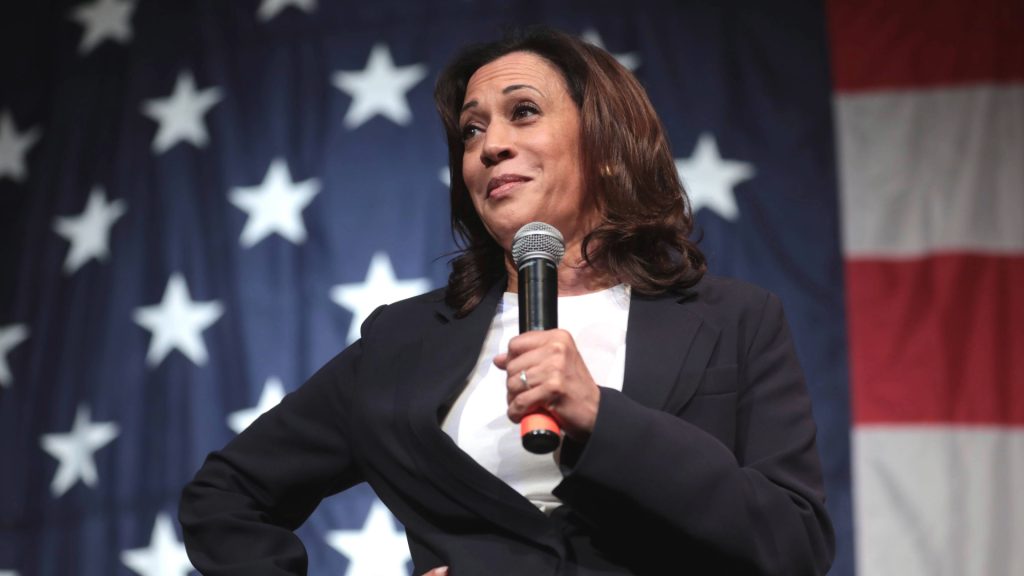
The comparison between Harris and Carter highlights perceived ineffectiveness in leadership during times of crisis. Carter dealt with economic woes and international conflicts that diminished faith in his governance. Similarly, Harris and President Biden face inflation, war abroad, and immigration issues that have lowered approval ratings. Connecting Harris to Carter’s speech suggests similarly poor leadership.
Questioning Effectiveness
As Trump sharpens his attacks on Biden, he draws comparisons to former President Jimmy Carter. Republicans have long viewed Carter’s presidency as ineffective and weak. However, some historians argue that perspective merits reconsideration.

Though Carter struggled with stagflation and the Iran hostage crisis domestically, his unwavering commitment to human rights and environmental conservation sparked key legislative actions. The Alaska National Interest Lands Conservation Act and the Superfund cleanup program were signed under his administration.
Controversial Remarks
Following his Republican primary victory in Iowa, former President Donald Trump made controversial statements criticizing the Biden administration. Trump labeled President Biden as “the worst president in the history of our country” and asserted that Biden was “destroying our country.”
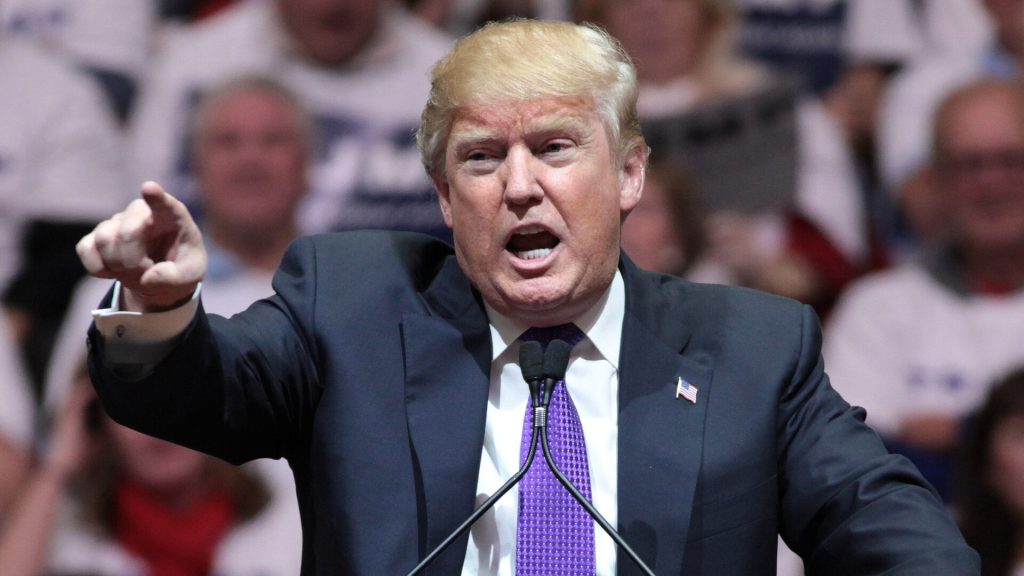
Trump’s harsh rhetoric is characteristic of his bold political style. However, some critics viewed his remarks as overly harsh and disrespectful, particularly considering he made them shortly after attending former First Lady Rosalynn Carter’s funeral.
Historical Parallel: Eisenhower Era
President Trump’s comparison of his immigration policy to President Eisenhower’s “Operation Wetback” has brought renewed attention to this controversial 1950s program. Operation Wetback was a concerted effort in 1954 under President Eisenhower to deport undocumented Mexican immigrants.

Tactics involved raids and mass deportations, removing over 1 million individuals of Mexican descent from the United States. While deemed successful in curtailing illegal immigration for a period, Operation Wetback elicited criticism for its harsh methods and racial overtones.
Addressing Southern Border Concerns
Securing the southern border has been a key priority outlined by the GOP candidate. He has repeatedly stated the need to address the “invasion” of undocumented migrants crossing into the U.S. illegally. The candidate aims to increase deportations to levels not seen since the Eisenhower administration’s “Operation Wetback” in the 1950s.

That program saw over 1 million Mexican immigrants deported, including some legally in the country. While the candidate feels current border policies are ineffective, some historians argue past presidents faced similar crises. Vice President Kamala Harris herself noted frustrations with the pace of progress.
Evoking the Eisenhower Legacy
Trump states he wants to see “a deportation level that we haven’t seen in this country for a long time, since Dwight Eisenhower.” This is likely an attempt to portray himself as a strong leader in immigration enforcement, similar to Eisenhower. It also aims to validate the extreme immigration measures he is proposing.
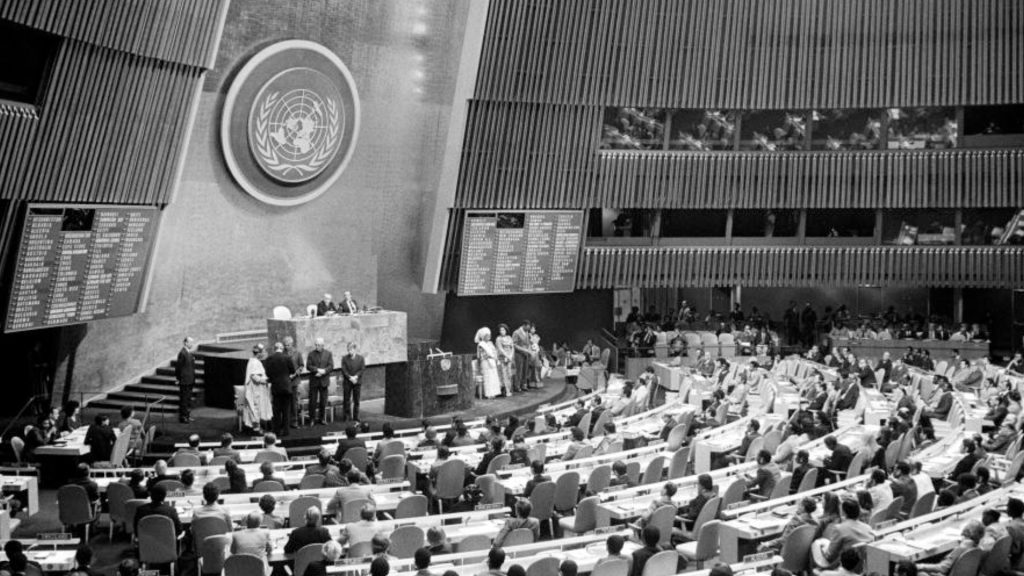
Additionally, Trump’s invocation of Eisenhower seeks to remind voters of an era thought to have more orderly, legal immigration. Though the methods were severe, Operation Wetback briefly achieved its goal of removing undocumented immigrants before many later returned.
Continuing Success on the Campaign Trail
Former President Donald Trump has had sustained success during the initial stages of his 2024 presidential campaign. He recently won the Iowa Republican caucuses, demonstrating his continued popularity among GOP voters.

Nonetheless, Trump’s enduring popularity with Republican voters, as evidenced by his Iowa victory, means Biden could face a formidable challenger should he run for reelection in 2024. Vice President Harris herself has acknowledged the current “malaise” and desire to “get back to normal” among Americans.
Summing Up Critiques
Trump’s recent speech after the Iowa caucus win contained strong criticism of President Biden’s performance thus far. He asserted that Biden is “destroying our country” and labeled him as “the worst president in the history of the United States.”

The former president argued that these problems have caused “embarrassment” and a “crisis of confidence” in America. His speech echoed previous comments calling Biden the “worst president ever.” Trump also contended that his predecessor, Jimmy Carter, must be “happy now” to no longer be considered the worst by comparison.
Analyzing Potential Impact
Trump’s tough talk on border security and deportations may appeal to Republican voters focused on restricting immigration. His promises to sharply increase deportations echo Eisenhower-era policies that were viewed by some at the time as restoring control and sovereignty. This messaging clearly aligns with Trump’s “America First” brand.

However, critics argue that Trump’s language promotes harmful stereotypes and fails to account for the nuances of modern immigration policy. Additionally, some historians dispute the notion that Eisenhower’s large-scale deportations should be emulated.
Political Comments Hitting Below The Belt
In conclusion, the rhetoric used to justify Operation Wetback has resurfaced in recent political attacks on immigration policy. While securing borders remains an issue of debate, the language of “invasion” recalls episodes in history that violated human rights.

Moving forward, discussing reforms requires nuance, compassion for migrants seeking better lives, and solutions that uphold America’s tradition as a nation of immigrants. There are still opportunities to get the policy right in a way that balances security, humanity, and openness to those pursuing the American Dream through legal channels.

